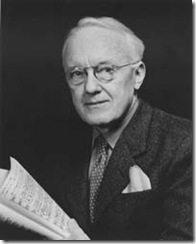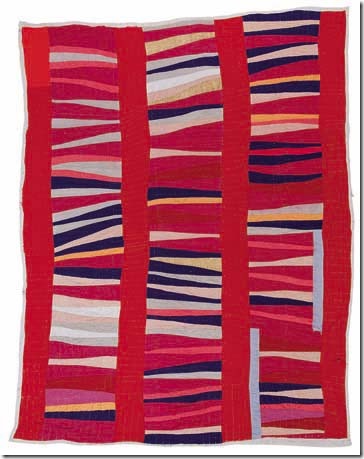Pieces of music come and go, sometimes just once before disappearing, sometimes aired out only every once in a while like an unfashionable sweater found in the depths of Grandfather’s closet.
But many of these works are pieces of real merit, and it’s up to performing organizations to start turning old and new rarities into repertory. The musicians of the Palm Beach Chamber Music Festival began that process in earnest Friday night at Palm Beach Atlantic University’s Persson Hall with the first program of their current 19th season of summer concerts.
Friday’s program (which repeats Sunday and Monday) was a challenging, demanding assemblage that included brand-new music and two older pieces that the group has recorded on its series of six discs for Boca Raton’s Klavier Records. What the audience heard was the formation of the festival’s own canon, its own discoveries, and if the wider musical world pays more attention to pieces such as the Suite for oboe, clarinet and viola of Randall Thompson, or the Nonet of Bohuslav Martinů, it will have this durable South Florida event to thank.
The same goes for Gee’s Bend Pieces, which had its world premiere in January at Lynn University during a weeklong new music happening featuring its composer, Kenneth Frazelle. It’s a trio for marimba, piano and trumpet, and pianist Lisa Leonard, who asked Frazelle to write the piece, helped make a strong case for it Friday night when she brought it back for this week of festival programs. Whereas the debut performance by a talented Lynn student ensemble had an almost raucous energy, this reading of the four-movement work had more shape, with Leonard, trumpeter Marc Reese and percussionist Michael Launius making the most of Frazelle’s prominent motifs and abundance of instrumental color.
This is a well-crafted, big-boned, forceful composition, strongly tonal and brashly harmonized, that is meant to evoke the celebrated African-American folk-quilting community of Gee’s Bend, Ala. Its two outer movements are powerfully rhythmic, particularly the finale (Dances), which goes through several different styles including a section that has the flavor of early jazz.
The second movement, Hymn Fade, makes a moving impression, as amid an almost constant blur of marimba tremolando chords a simple hymn tune in the piano makes its appearance, a melody that is then seconded by the trumpet. It is a lovely, ecstatic movement, and it serves as the emotional heart of this fine new piece of very American music. Aside from a minor flub in the first measures, Reese played with command and beauty, and Launius was excellence personified, building up huge heads of rolling-chord steam and dashing off the climbing scales of the fourth movement with admirable precision.
And Leonard remains one of the best pianists to be heard in this region, a player of consistently high quality whose musical intent can be understood immediately as she plays; she knows what message she wants to get across, and conveys it with absolute clarity.
 Gee’s Bend Pieces followed the Thompson Suite, written in 1940 by the Harvard academic best-known for his Alleluia, a short choral work beloved by school and professional singing groups. The five-movement suite – played by oboist Sherie Aguirre, violist Rene Reder and clarinetist Michael Forte – is a little masterpiece of homespun Americana, cannily written for an unusual but pleasing combination of instruments whose mid-range warmth should recommend it to other writers. The most affecting of the movements here was the fourth, a Lento religioso that suggested in its minor-tonality modal way an ancient hymnody of severe devotion, the gorgeousness of its primary melody notwithstanding.
Gee’s Bend Pieces followed the Thompson Suite, written in 1940 by the Harvard academic best-known for his Alleluia, a short choral work beloved by school and professional singing groups. The five-movement suite – played by oboist Sherie Aguirre, violist Rene Reder and clarinetist Michael Forte – is a little masterpiece of homespun Americana, cannily written for an unusual but pleasing combination of instruments whose mid-range warmth should recommend it to other writers. The most affecting of the movements here was the fourth, a Lento religioso that suggested in its minor-tonality modal way an ancient hymnody of severe devotion, the gorgeousness of its primary melody notwithstanding.
Aguirre played with a large, fat sound that lost none of its roundness even in the highest registers, for which Forte’s somewhat softer, breathier sound made a good match. Reder provided expert harmonic support for her two partners, and in the solo passages of the second movement, played with a grave kind of elegance that was most appealing.
The Thompson was one of two works on the program that the festival musicians have performed in past seasons and then recorded, the other being the Martinů Nonet, which is for string trio, wind quintet and bass. Written in 1959, this three-movement work is classic Martinů in its lightheartedness, quirky harmonies, and catchy rhythms, and like the Thompson deserves to be regularly programmed on chamber music concerts.
The nine musicians blended with skill; there was no sense here of mismatch, of too many winds to too few strings, or of two different sound qualities colliding. Rather, it had a rough-and-ready unity that served the music well. Hornist Ellen Tomasiewicz was particularly good, bringing an impressively big sonic presence to the first and second movements.
The concert opened with an early work of Schubert, the String Trio in B-flat, D. 581. Here, too, is a neglected but worthy work, in which the 20-year-old composer writes in the spirit of Haydn, but with a melodic distinction all his own. Violinist Mei-Mei Luo, violist Rebecca Didderich and cellist Christopher Glansdorp gave a fine account of it, collaborating well and effectively bringing out the work’s variety.
Luo’s intonation in the first movement was somewhat imprecise, especially because of the wry, accidental-heavy nature of the opening theme, which sneaks around the notes of the tonic scale and has to be right on the money in order to make musical sense. Things were much better in this regard in the charming second movement and the lyrical third; Didderich’s solo work in the minor-key section of the second and the trio of the third was excellent.
The second half began with Luo and cellist Susan Bergeron in Passacaglia, a theme-and-variations duet showpiece by Norwegian composer and conductor Johan Halvorsen (1864-1935), based on a passacaglia from a keyboard work by Handel. This is an exciting, sparkling piece that shows what a composer with imagination and resource can do with some very basic material.
Here again there were intonation problems at the beginning from Luo, but she recovered and was able to show off her considerable digital prowess in these variations, notably at one point where she played a high-floating variation entirely in harmonics. Bergeron was terrific throughout, rapidly scaling some broken diminished chords in one passage and yet able to make them speak as harmonies, and matching Luo run for run as they tossed off this light but entertaining morsel.
The Palm Beach Chamber Music Festival repeats this program at 2 p.m. Sunday at the Crest Theatre, Delray Beach, and at 8 p.m. Monday at the Eissey Campus Theatre at Palm Beach State College in Palm Beach Gardens. Tickets are $22. Call 800-330-6874 or visit www.pbcmf.org.
